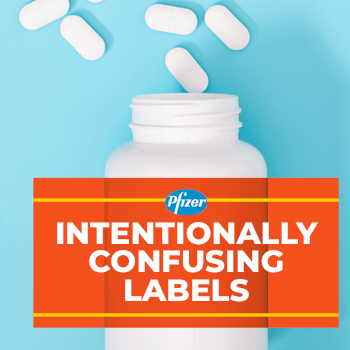
Lipitor’s link to diabetes and Pfizer’s ongoing failures to disclose this risk must not be ignored in Pfizer’s quest to have its popular cholesterol-lowering drug approved for purchase without a doctor’s prescription. In fact, it should be central to the debate currently in front of the FDA.
Lipitor has been shown to be particularly dangerous for older women, increasing their risk of developing type 2 diabetes by 48%. Pfizer has been deliberately flaunting an FDA order in 2012 that the drug include a warning about this risk on its label. Instead of a clearly worded caution, Pfizer has chosen this language: “Increases in HbA1c and fasting serum glucose levels have been reported with HMG-CoA reductase inhibitors, including LIPITOR.” Compare this warning to that of Pfizer’s chief competitor in the statin market, Astra Zeneca, which makes Crestor. Astra Zeneca warns in its package insert that Crestor “has been shown to increase the risk of diabetes mellitus.” Which wording shows the company cares about consumers?
As Lipitor lawsuits multiply over Pfizer’s’ failure to adequately convey diabetes risk of Lipitor, the company is forging ahead with plans to win FDA approval of a low-dose product that can be bought over-the-counter. As reported in Forbes, Pfizer is enrolling 1200 participants in a clinical trial to see whether users will voluntarily and regularly get their cholesterol levels checked to see if the drug is providing them any benefit. This is important because statins have potentially serious side effects. They should not be taken if they aren’t helping.
Other OTC drugs, such as aspirin, allergy and cold medicines, are such that users usually can tell quickly if they’re doing any good. Not so with cholesterol-lowering drugs like Lipitor. Users would have no way of knowing if the drug is helping them unless they regularly had their cholesterol checked. The FDA has refused other requests from statin-makers for OTC status for this and other reasons.
Given that Pfizer seems to prefer being less than forthcoming when it comes to telling the public about the Lipitor-diabetes link, the FDA has no reason to think that Pfizer would be any more straightforward in advising the public about the risks of even a low-dose regiment of Lipitor without regular cholesterol checks.
Pfizer reportedly will reap an additional $1 billion in profits if Lipitor is approved for OTC use, but it already has broken trust with the public. There’s no reason to think it would handle a non-prescription version of Lipitor with any more integrity.
RELATED POSTS
Miralax Fears Finally Get FDA Attention
